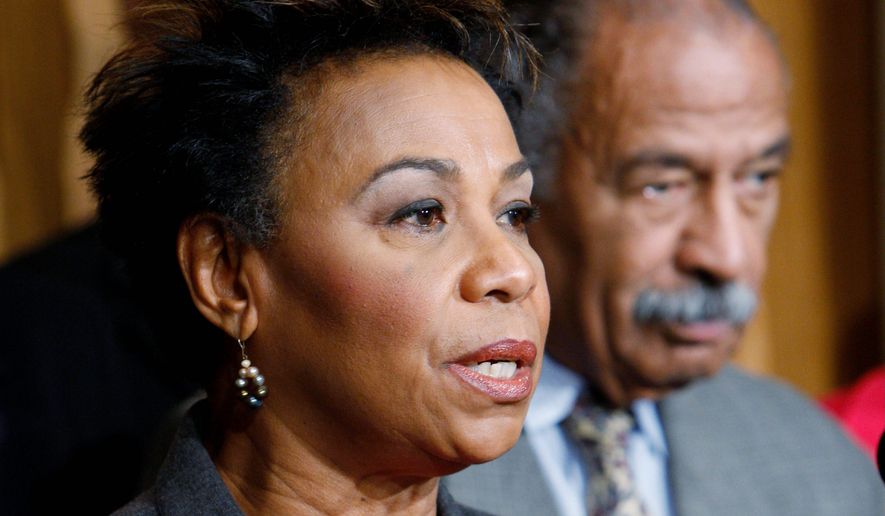The battle over teen sex education is firing up again: Congressional committees are boosting funds to abstinence-education programs while cutting other anti-pregnancy approaches.
Also, the House’s newly passed education bill prohibits federal funding of materials or programs that “normalize teen sexual activity as an expected behavior.” The bill’s language is being criticized by Democrats as a sneak attack on comprehensive sex education.
“Our young people deserve medically accurate and age-appropriate sex education so they can live healthy lives and have healthy relationships,” Rep. Barbara Lee, California Democrat, told RH Reality Check, a reproductive health news website.
“Sadly, this bill goes in the exact opposite direction by prohibiting funding for proven health and sex education curriculum that keep young people healthy,” said Ms. Lee, referring to the H.R. 5 or the “Student Success Act,” which passed the House on Wednesday.
H.R. 5, which reforms the Bush-era No Child Left Behind (NCLB) law, says schools cannot use federal funds to “normalize teen sexual activity as an expected behavior, implicitly or explicitly.”
Neither the NCLB nor a Senate NCLB-reform bill now being debated, called “Every Child Achieves Act,” have the same provisions.
Current law already forbids federal funds to be used for materials that are “legally obscene,” or programs that “promote or encourage sexual activity,” whether “homosexual or heterosexual.”
The Family Research Council was an early supporter of H.R. 5’s prohibitions, saying in February, “We do not believe students should be taught risky behaviors.”
Congress is trying to make sure that when sex is discussed in classrooms, educators will point youth “toward the best health outcomes,” Valerie Huber, president of the National Abstinence Education Association (NAEA), said Thursday.
“Explicit conversations or those that normalize teen sexual activity will be precluded from funding” if the House language becomes law, she said. However, NAEA members believe that sex education goes beyond preventing pregnancy or disease, she said.
“It needs to be a holistic message” that will increase the knowledge and skills of all youth and help them “understand and develop healthy relationships,” she said.
Supporters of comprehensive sex education are alarmed not only by H.R. 5’s language, but also about congressional plans to slash teen-pregnancy prevention funds — and then equally divide it with abstinence or “sexual risk-avoidance” programs.
The current $105 million in sex education funding — 95 percent of which go to the Teen Pregnancy Prevention Program (TPPP) — is set to be slashed in fiscal 2016 in both Senate and House appropriations bills.
The Senate bill cuts the funding to $40 million, with $20 million each to TPPP and sexual risk-avoidance programs. The House bill cuts it to $20 million, and also evenly divides it.
“We are delighted to see parity” in funding, Ms. Huber said.
Not so the Sexuality Information and Education Council of the United States (SIECUS), which said the proposed changes “would decimate funding” for TPPP, possibly to the point of crippling its effectiveness. American youth have a right to “quality sex education,” said Deb Hauser, president of Advocates for Youth, which joined SIECUS in calling for fully funding TPPP.
Eight in 10 adults support the evidence-based TPPP, said the National Campaign to Prevent Teen and Unplanned Parenthood, referring to a recent telephone poll of 1,015 adults.
Teen pregnancy and birth rates have fallen especially steeply in recent years, said Bill Albert, chief program officer of the National Campaign. “Why mess with success?”
• Cheryl Wetzstein can be reached at cwetzstein@washingtontimes.com.




Please read our comment policy before commenting.